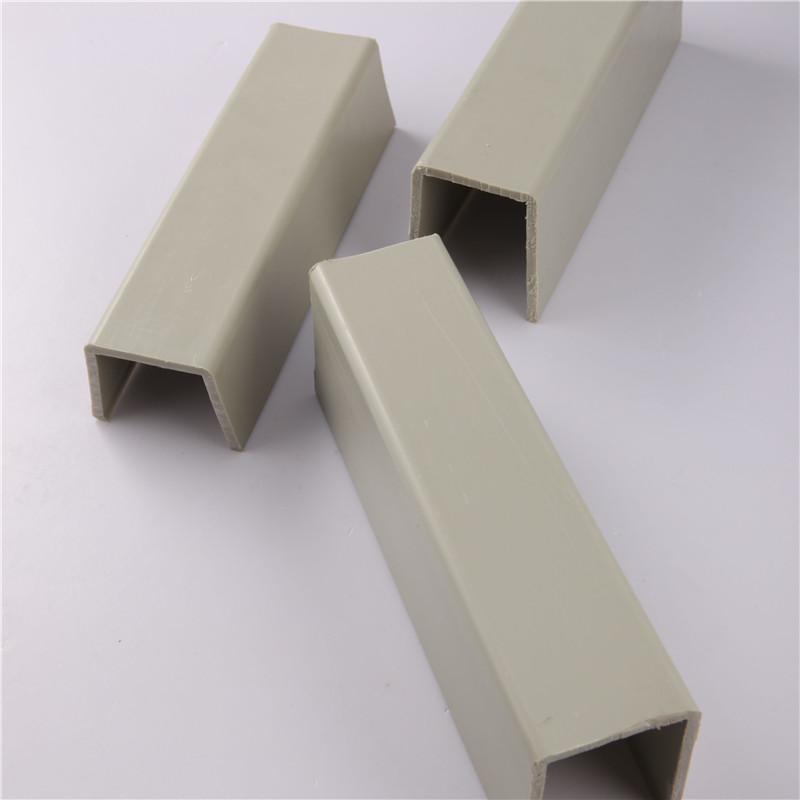ታኅሣ . 05, 2024 18:38 Back to list
Optimizing PPR Water Pipe Performance and Efficiency for Sustainable Plumbing Solutions
The Advantages and Applications of PPR Water Pipes
In recent years, PPR (Polypropylene Random Copolymer) water pipes have become increasingly popular in plumbing and construction industries. Not only do these pipes offer a variety of advantages over traditional materials such as metal or PVC, but they also play a crucial role in various applications, including residential, commercial, and industrial settings.
What is PPR?
PPR pipes are made from a specific type of polypropylene that is designed to be flexible, durable, and resistant to temperature changes and pressure variations. The random copolymerization of polypropylene allows for improved properties, making PPR pipes suitable for hot and cold water applications. They are often green or grey in color and come in various diameters to accommodate different plumbing needs.
Advantages of PPR Water Pipes
1. Corrosion Resistance One of the most significant advantages of PPR pipes is their resistance to corrosion. Unlike metal pipes, which can rust or corrode over time, PPR pipes maintain their integrity even in the presence of liquids that could potentially cause degradation. This attribute ensures a longer lifespan for the plumbing system.
2. Cost-Effectiveness While the initial cost of PPR pipes might be slightly higher than PVC, their longevity and low maintenance needs make them a cost-effective solution in the long run. With reduced replacement and repair costs, PPR pipes can lead to substantial savings for homeowners and businesses alike.
3. Low Thermal Conductivity PPR has low thermal conductivity, which reduces heat loss in hot water systems. This property not only enhances energy efficiency but also contributes to maintaining the desired water temperature, making it an ideal choice for heating systems.
4. Ease of Installation PPR pipes are lightweight and easy to handle, making installation a straightforward process. The joints can be welded using a heat fusion method, creating a seamless connection that minimizes the risk of leaks. Furthermore, this installation technique reduces the need for fittings, which can be a source of weakness in plumbing systems.
5. Durability PPR pipes can withstand high pressure and temperature variations, providing excellent performance in both hot and cold water supplies. This durability makes them suitable for a wide range of applications, from residential water distribution systems to industrial processes that involve heating.
ppr water pipe

6. Environmental Impact PPR pipes are recyclable, which is an essential consideration in today’s environmentally conscious society. When disposed of, they have a minimal impact on the environment compared to other materials that contribute to pollution. Additionally, the energy-efficient nature of PPR systems contributes to lower carbon footprints.
Applications of PPR Water Pipes
PPR pipes have a diverse range of applications due to their advantageous properties. Here are some common uses
1. Residential Plumbing In homes, PPR pipes are commonly used for both hot and cold water supply systems. Their corrosion resistance and durability make them an excellent choice for kitchen and bathroom installations.
2. Heating Systems PPR's ability to withstand high temperatures makes it ideal for underfloor heating systems and radiator connections in residential and commercial buildings.
3. Industrial Uses Many industries rely on PPR pipes for transporting hot and cold fluids because of their strength and resistance to chemical reactions. They are often used in food processing, pharmaceutical manufacturing, and various other industrial applications.
4. Irrigation Systems PPR pipes are frequently employed in agricultural settings for irrigation purposes. Their durability and ability to withstand adverse environmental conditions ensure efficient water delivery to crops.
5. Fire Protection Systems PPR pipes are also used in fire protection systems due to their excellent durability and resistance to high temperatures.
Conclusion
PPR water pipes represent a significant advancement in plumbing technology, offering a combination of durability, cost-effectiveness, and environmental benefits. From residential applications to industrial processes, the versatility of PPR pipes makes them an ideal choice for a wide array of uses. As the demand for reliable and sustainable plumbing solutions continues to grow, PPR water pipes are likely to remain a prominent choice for builders, contractors, and homeowners alike. With their many advantages, it’s clear that PPR pipes are not just a passing trend, but a reliable solution for modern plumbing needs.
-
Durable PVC-M Water Supply Pipes | 60-Year Life
NewsAug.04,2025
-
Premium HDPE Water Supply Pipes: Durable & Leak-Proof
NewsAug.03,2025
-
Premium PVC-M Water Supply Pipe - Durable & Efficient
NewsAug.02,2025
-
Premium PP Welding Rod: GPT-4 Turbo Enhanced
NewsAug.01,2025
-
HDPE Drainage & Irrigation Pipe - Durable, Efficient Solutions
NewsAug.01,2025
-
Premium PVC Transparent Pipe: Durable & Clear Solutions
NewsJul.31,2025

